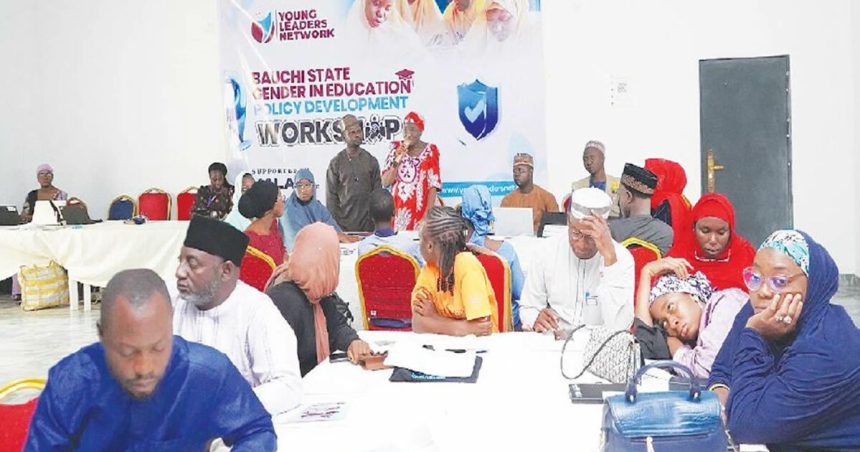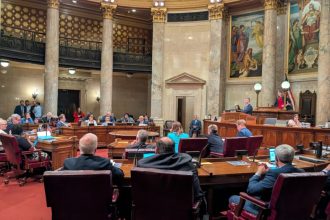The Young Leaders Network, a Bauchi-based civil society organisation, has engaged stakeholders in the state to develop a gender-inclusive education policy aimed at addressing challenges affecting girls’ access to education.
Speaking at the opening of a three-day workshop in Bauchi, the Executive Director of YLN, Seun Justin, said the initiative was about “rewriting the future of Bauchi’s children, particularly girls who are often left behind by circumstances beyond their control.”
Justin noted that despite several interventions, too many girls in the state still drop out of school due to early marriage, teenage pregnancy, and a lack of support to continue their education.
“The statistics are sobering, but let us remember — behind every statistic is a child with a name, a face, and a future,” he said.
He stressed the need for participants to move from mere intentions to clear commitments that would change lives.
“Our task over the next three days is to make sure those futures are not cut short. Investing in girls’ education is not charity; it is smart economics, justice, and common sense,” Justin added.
The YLN boss further urged participants to be bold, practical, and inclusive in the policy development process, stressing that the outcome should reflect the realities of the people and not remain a document that gathers dust.
He stressed, “Let us co-create a Gender in Education Policy that reflects the hopes and realities of our people. A policy that is not just written on paper but lived out in classrooms, in communities, and in the lives of our children.”
Justin expressed confidence that the draft of the contextualised National Gender Policy on Education for Bauchi State reflected both national standards and local realities.
While commending participants for their contributions, he outlined the next steps, which include adoption and ownership of the document by partners, inauguration of a steering committee, publication, and dissemination.
He also tasked the Accelerating Girls’ Education Project, the Bauchi State Ministry of Education, and civil society organisations to integrate the policy into their proposals, internal reporting, and daily operations.
On his part, the Chairman of the National Association of Proprietors of Private Schools, Bauchi State Chapter, Musa Hardo, who was a participant at the workshop pledged the commitment of private school owners in the state to comply with the proposed gender in education policy.
According to him, the initiative is timely and relevant in addressing the challenges of school dropouts, particularly among girls.
“Really, I appreciate the event. The activity is a policy-making activity, and I think it is good, not only for Bauchi State but for the entire country. We are talking about children who leave school without completing their education. How will they be captured?
“A policy that will facilitate their completion in school, especially for the girl child, is commendable,” he said.
On the compliance of private schools with the government directives, Hardo explained that all proprietors were under the supervision of the Ministry of Education and must abide by its policies.
He noted that “Any policy approved by the Ministry of Education applies to private schools. The only challenge is that some proprietors are not aware. So, we will do our best to sensitise them.”
He further observed that while Nigeria often faces challenges with policy implementation, the full adoption of the gender policy would positively transform the education sector in the state, saying “If it is going to be implemented, it will definitely be beneficial to our girl child in Bauchi State.”
Also speaking, the State Commissioner for Education, Muhammad Rimin-Zayam, reaffirmed the government’s commitment to reducing the number of out-of-school children in the state, particularly girls, through collaborative partnerships with stakeholders.
He stated that the initiative aligns with the state government’s drive to expand access to education and ensure equity.
“It is all about bringing back our girls to school. This is a very good collaboration. This alliance or this alignment. The policies of the state and what we do to align. So I believe this collaboration will go a long way in bringing back all our out-of-school children, even though it was an exaggerated statistic. All these are very timely,” Rimin-Zayam said.
The commissioner commended the efforts of civil society organisations for supporting the government’s initiatives, stressing that the partnership would help bridge gaps in implementation and improve educational outcomes in Bauchi State.









